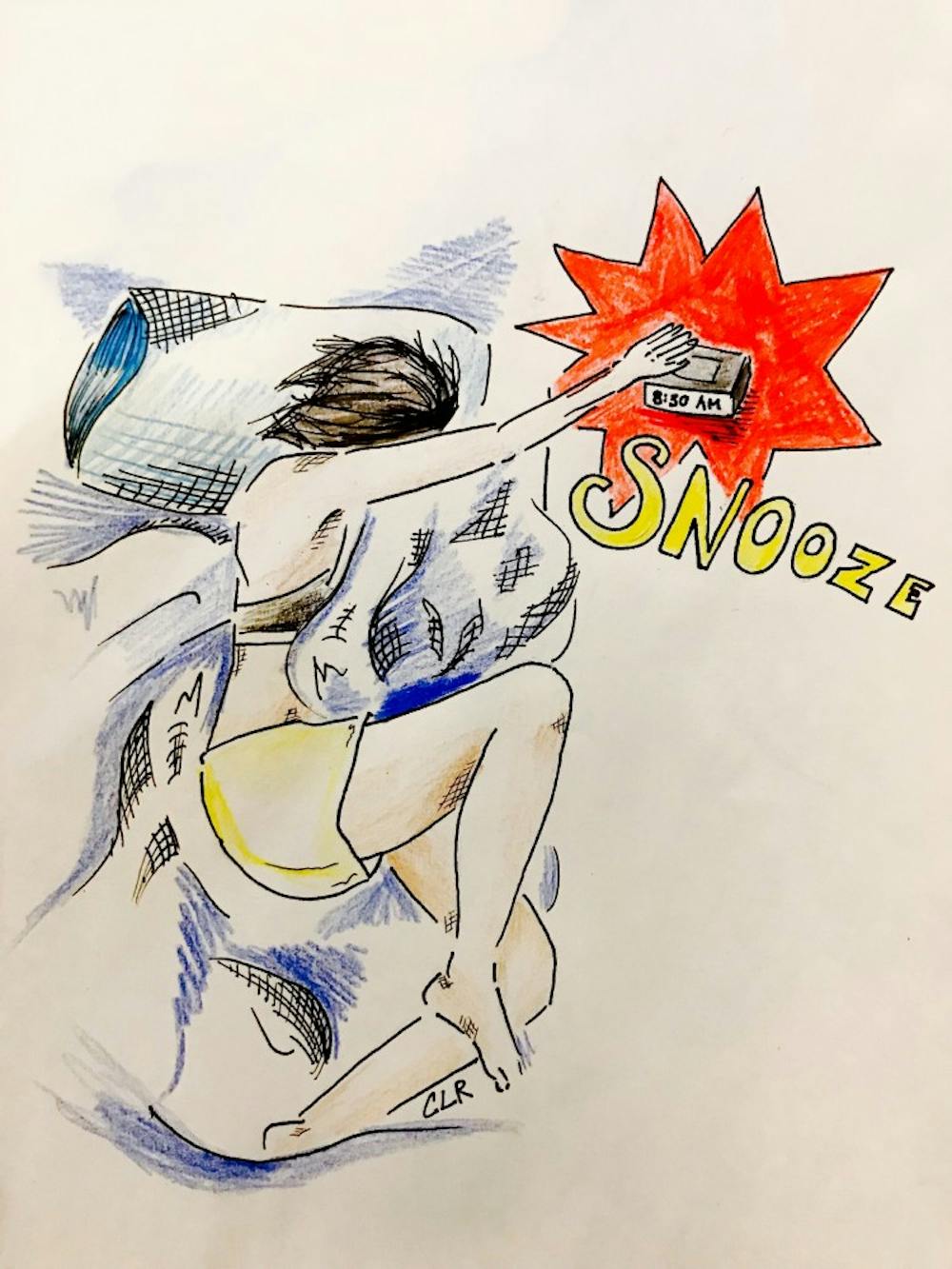It might be time to admit you have a problem when you find yourself groggily reaching over to turn off your 5th consecutive alarm of the morning. Kevin Chen (E ’21) gets it. “I choose the most obnoxious ringing sound that the iPhone has,” he said of his alarms, because he can't get up on the first one. Chen’s difficulty waking up in the mornings is a relatable experience to many students, who juggle academics, extra–curriculars, and their social life on the daily. He considers himself to be a night owl but hasn’t really tried much to change his sleeping patterns.
Luckily, it’s never too late for change. Just because you classify yourself as a night owl doesn’t mean you can’t become an early riser. According to Penn Med assistant psychology professor Dr. Philip Gehrman, it’s all about the science of circadian rhythms. Circadian rhythms regulate organisms’ biological processes (including waking and sleeping) in a 24–hour, day–and–night cycle. The rhythm adjusts to local surroundings by using external clues such as light and temperature.
“When we stick to a regular schedule, our internal clock gets set to that timing so that our body is able to anticipate the time we are going to be waking up,” said Gehrman. “When we get on that rhythm, that’s when we often times start waking up before our alarm.”
Sounds pretty straightforward—just follow a regular schedule and your biological clock will shift earlier, right? The problem is that it’s hard to pretend you have a 9 am recitation on a Saturday morning after staying out till 3am. That irregularity in your wake–up schedule can throw your circadian rhythm off–kilter.
Furthermore, some people have a very strong tendency to be night owls. In those cases, bright light exposure in the morning, particularly natural light, can sometimes help give an extra boost. In the same manner, light can negatively affect your sleep if you’re exposed to it before you go to bed. Blue light exposure, also known as the Netflix show you’re currently binge–watching or your constantly updating Instagram feed, is particularly bad for your sleep.
But if you’re ready to make a change, don’t turn to apps that claim to track your sleep cycles. “There’s lots of apps out there—the problem is none of them have been validated so I have no idea how good any of them are,” said Gehrman. When asked about the possibility of developing an app to keep track of your circadian rhythms, he said, “I think it’s possible, but I’d need to see the data first.”
So before you invest in some fancy alarm clock, try these following tips instead. Force yourself to get out of bed and cross the room by putting your alarm out of reach. Showering or exercising in the morning can also help get your day going.
Gehrman adds, “This is an obvious one, but one of the biggest reasons people have a difficult time waking up in the mornings is they’re just not getting enough sleep. If you can increase your sleep so that you feel rested in the morning, it just makes your day that much better.”
If all else fails, be like Chen, who planned his schedule for this semester based on the fact that he wakes up at around 12 pm every day. He said, “I missed class quite often first semester. Now most of my classes start at 1pm."







